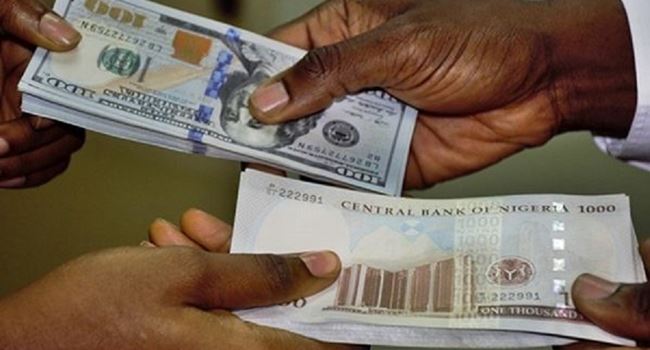At the official market, the Naira experienced a slight recovery against the dollar on January 31, 2024, bouncing back from a record low of N1,482.57 per dollar the previous day.
Closing the month, the domestic currency appreciated by 1.85%, settling at N1,455.59 against the dollar, as per data from the NAFEM, the official forex trading platform. This marks a gain of N26.98 or a 1.85% increase compared to the previous day’s close at N1,455.59.
The intraday high reached N134.07/$1, while the intraday low was N789/$1, indicating a wide spread of N720/$1.
Data from the official NAFEM window reveals a forex turnover of $134.07 million at the close of trading, showcasing an 85.36% increase compared to the preceding day.
However, the naira closed weaker at the parallel forex market, where unofficial forex trading occurs, quoted at N1,470/$1, reflecting a 1.02% drop from the previous day. Peer-to-peer traders quoted around N1,526/$1.
In response to concerns over excessive foreign currency speculation and hoarding by Nigerian banks, the Central Bank of Nigeria (CBN) issued a new circular titled “Harmonisation of Reporting Requirements on Foreign Currency Exposures of Banks.” The circular introduces guidelines to mitigate the risks of holding large foreign currency positions.
The CBN is alarmed by the growing trend of banks maintaining substantial long foreign currency positions, exposing them to foreign exchange and other risks. The central bank aims to manage these risks to prevent potential losses that could pose systemic challenges.
In simpler terms, the CBN suspects that some banks hold significant foreign currency positions, hoping to profit from fluctuations. This practice involves banks buying or holding foreign currencies with the anticipation of gaining from exchange rate fluctuations. However, such behaviour exposes banks to risks, including exchange rate volatility and potential financial losses.











